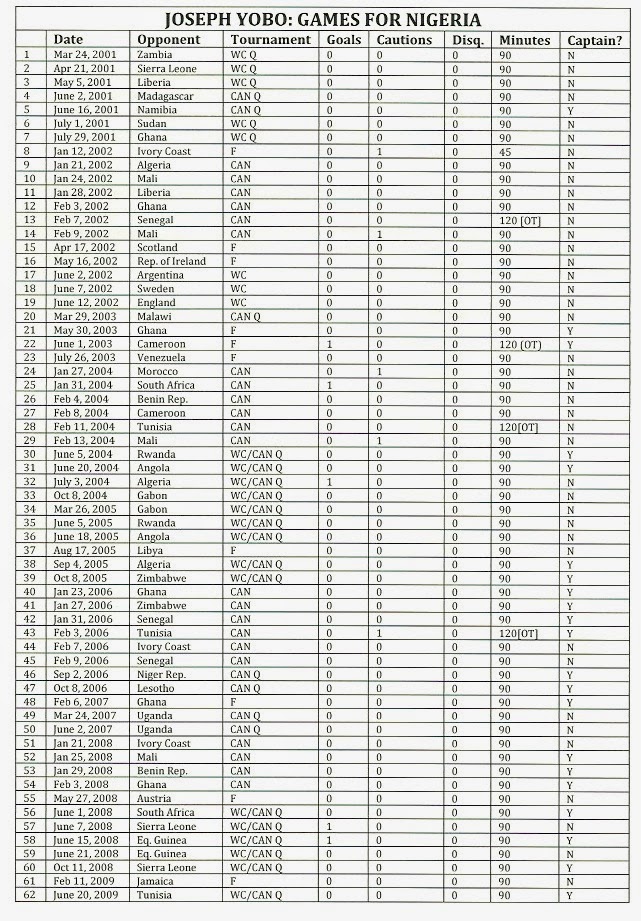Nigeria's Top 10 Coaches: How they rank in games, friendlies, etc….
It is generally agreed that Clemens Westerhoff and Stephen Keshi are Nigeria's most accomplished coaches as both have won the Cup for African Nations away from home and have reached the Round of 16 at the World Cup. Other coaches to win ultimate laurels at the continental level with the national team are Otto Gloria (1980 Cup for African Nations) and Jorge Penna (1973 All Africa Games gold). Shuaibu Amodu placed fourth with Nigeria at the Intercontinental Cup (now Confederations Cup).
However, there are other ways that coaches can be compared and we do so in this piece. First we determine the top ten coaches through two processes before comparing the selected top ten. The first was to only consider those who have coached at least 10 games. This way we have an appreciable number of games to to evaluate the work of the coach. This eliminated some coaches like Bora and Siasia that did not have enough games under their belt. The next step was to compare all coaches on their overall efficiency and then using the outcome to determine the top ten listed on Table 1. It is important also to note that a coach has to coach at least three games in any category under analysis for data to be considered meaningful. We have chosen the three-game threshold based on most tournaments using that threshold to determine group winners.
We also compared the top 10 coaches on results obtained in friendly and competitive games (Table 2). It is important to note that we have counted as "friendlies" a few tournaments where participating teams are strictly by invitation (LG Cup), involve less than four teams (Afro-Asian Cup), or regionally-based (ECOWAS). The comparisons are based on efficiency scores (i.e number of points obtained from games as percentage of maximum points available). Eguavoen leads all coaches in efficiency scores from competitive games. Eguavoen's era is a coaching enigma. He did not win a laurel but he achieved mind boggling victories even away from home and this is reflected on his high efficiency scores. We have highlighted, by bolding, efficiency scores of the top five in each category. Westerhoff and Keshi are in the middle of the park with .65 and .63 respectively in competitive games. In international friendlies, Westerhoff leads the pack with .77 efficiency score. What is remarkable is that it appears that Shuaibu Amodu did not take friendlies seriously with a poor score of only .28 whereas he had the second best efficiency score in the competitive games (.75). Then we note that we have not entered friendly-game data for Bonfrere as he did not coach up to three (3) such games.
Table 3 shows comparative efficiency scores in home and then away games. Of course, away games often mark the strength of coaches since Nigeria generally wins at home. If we then look at the data for away games, we see that Eguavoen ties for first place with a remarkable .56 score. Bear in mind that a .33 score is considered acceptable as this score is obtained in drawing an away game (i.e. 1 point out of a possible 3 points). Tied with Eguavoen is the current Manager Stephen Keshi at .56. A remarkable result here is Berti Vogts with a very strong score of .52 which is higher than Westerhoff (.27) or Bonfrere (.20). The scores for Westerhoff and Bonfrere are surprising as they show poor results in away games which is not ordinarily anticipated particularly in most fans' recollection of the Westerhoff era. But then that is why these statistics help in reminding us that not all things were in fact rosy in that era. Notably, Vogts did not have the benefit of a home game throughout his tenure but yet scored .57 to be among the top 10 coaches. Most of the coaches had extremely high efficiency scores for home games as should be expected, with Eguavoen achieving a maximum score (1.00) but he coached just four of such games. Coach Chukwu had the least score at home (.64).
These statistics point to supplementary and quantitative ways to evaluate coaching results that go beyond winning laurels. They do not replace the laurels, understandably, but offer additional evaluative insights. In the data provided above one could look at efficiency scores, particularly in competitive and away games, as critical. Those are usually more difficult to achieve compared to less meaningful results from friendlies or home games for two reasons: (1) friendly results may understate or overstate a team's strength because winning is not always a goal in such situations and teams may not field their strongest team throughout the duration of the game, and in (2) Nigerian home games are usually won and, thus, may not be discriminative enough for coaching evaluation purposes.
***To learn more about Nigerian soccer statistics checkout CHUKASTATS at Amazon.com books.***



Comments
Post a Comment